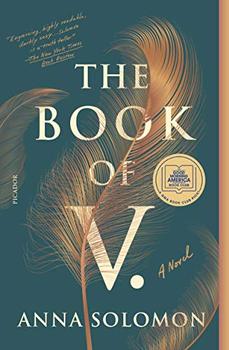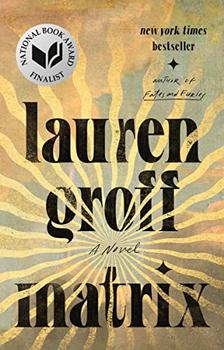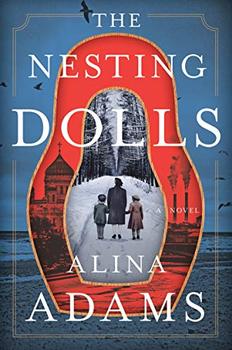Summary | Excerpt | Reading Guide | Reviews | Beyond the book | Read-Alikes | Genres & Themes | Author Bio

In ancient Persia, Esther, a young Jewish woman, parades herself in front of the king in a desperate attempt to save her people. In the 1970s, Vee, a United States senator's wife, is floundering after being punished for refusing to follow her husband's humiliating orders. In 2016, Lily, a wife and mother, questions her life choices as she receives devastating news. In The Book of V., Anna Solomon weaves together these women's stories, creating an exploration of feminism, purpose and cultural identity.
The novel is divided into three points of view, one for each of the women. This multi-narrative approach is becoming more common in literature with varying degrees of success, but Solomon pulls it off. Each of the plot lines feels distinct and necessary, and the back-and-forth between the characters and the centuries helps move the story along. However, it does move quite slowly. This is very much a character-driven book with a strong focus on the personal growth and conflicts of Esther, Vee and Lily. As the women are forced to face life-changing events, and not necessarily good ones, their decisions show that sometimes it takes major events like these to shake a person out of their rut and push them to change.
Solomon chooses to focus the struggles of all three women around marriage, albeit in very different ways. Esther is chosen by the king of Persia to be his new queen, and while this gives her the chance to intervene in the kingdom's attack on the Jews, it also puts her in a role that forces her down a path she never would have chosen for herself. Vee's marriage is ending because of a scandal she caused at her husband's party, but the upheaval gives her a chance to reevaluate what she wants out of life. Lily's marriage is in flux as she begins to wonder if she made the right choice in giving up her academic career to become a homemaker, especially as she seems to be doing such a poor job of it. However, the choices these women are able to make in response to their marital situations are vastly different as a result of the time periods in which they find themselves. At their heart, all three stories are about female autonomy—or lack thereof, in Esther's case—and carefully examine how a woman's place and role has changed but in some respects remained the same over the centuries. Featuring three women from societies with different views on feminism creates different endings to the narratives, but the stories still intertwine in unexpected and satisfying ways.
Both the stories of Vee and Lily reflect parts of the story of Esther. Vee is a modern version of Vashti, the queen before Esther who was banished for refusing to appear at the king's party in only her crown; Lily, a Jewish woman and second wife questioning her marriage and her role as a mother, is clearly representative of Esther herself. The relatively direct parallels between these two story lines and Esther's tie the three narratives together, but the two modern points of view take a bit too long to meet up, creating a lack of cohesion for most of the book. However, when the tales do eventually connect, it's done in such a way that readers will find themselves flipping back to see how they could have missed it. Much as with the story of Esther, which readers will find quite different from the biblical tale (see Beyond the Book), the other women's stories aren't what they first appear to be; the reveal of long-held secrets dramatically changes the reading of both women's narratives.
The Book of V. is an intriguing and challenging novel that uses a reimagining of Esther's story as a framework for the stories of modern women and their struggles to define their roles and purposes in life. With its themes of feminism and self-discovery, Solomon's book will appeal to women of all ages and anyone who likes a lot of girl power in their fiction.
![]() This review was originally published in The BookBrowse Review in June 2020, and has been updated for the
June 2021 edition.
Click here to go to this issue.
This review was originally published in The BookBrowse Review in June 2020, and has been updated for the
June 2021 edition.
Click here to go to this issue.

If you liked The Book of V., try these:

by Lauren Groff
Published 2022
Cast out of the royal court by Eleanor of Aquitaine, deemed too coarse and rough-hewn for marriage or courtly life, seventeen-year-old Marie de France is sent to England to be the new prioress of an impoverished abbey, its nuns on the brink of starvation and beset by disease.

by Alina Adams
Published 2021
Spanning nearly a century, from 1930s Siberia to contemporary Brighton Beach, a page-turning, epic family saga centering on three generations of women in one Russian Jewish family - each striving to break free of fate and history, each yearning for love and personal fulfillment - and how the consequences of their choices ripple through time.
Your guide toexceptional books
BookBrowse seeks out and recommends the best in contemporary fiction and nonfiction—books that not only engage and entertain but also deepen our understanding of ourselves and the world around us.